JIU LIVRE GRAPPLING OFFICE MARTIAL ARTS FOR ALL AGES!
From the Boardroom to the Mat: How Jiu-Jitsu Builds Leadership and Decision-Making Skills
In both martial arts and leadership, success requires mental agility, emotional resilience, and the ability to make strategic decisions under pressure. Brazilian Jiu-Jitsu (BJJ), a combat sport focused on grappling and ground fighting, offers profound lessons that can elevate one's leadership abilities in both personal and professional settings. The principles learned on the mat are directly applicable to decision-making and leadership strategies in the boardroom, providing a framework for developing key skills such as adaptability, resilience, and emotional intelligence. While physical strength plays a role in Jiu-Jitsu, mental sharpness is paramount. Leaders, much like Jiu-Jitsu practitioners, must think several moves ahead, anticipate obstacles, and remain composed under pressure. This article explores how the discipline of Jiu-Jitsu mirrors leadership, particularly in terms of strategic decision-making, emotional regulation, and personal growth.
The Philosophy of Jiu-Jitsu and Leadership Principles
Learning Adaptability and Resilience
In Jiu-Jitsu, no two matches are the same. Each opponent offers unique challenges that force practitioners to constantly adapt their strategies. This mirrors the business world, where leaders face evolving situations and must remain flexible in their approach. Adaptability in Jiu-Jitsu comes from a willingness to learn and experiment, understanding that setbacks are not failures but opportunities to grow.
Similarly, resilient leaders thrive in uncertain environments. They adjust to unforeseen circumstances, using lessons from past experiences to navigate through challenges. Just as in Jiu-Jitsu, where the smallest adjustments can lead to a more advantageous position, leaders must remain nimble, constantly refining their strategies to stay ahead.
Developing Emotional Intelligence and Patience
Emotional intelligence is another trait honed through Jiu-Jitsu. Practitioners quickly realize that brute force alone doesn't win matches. Rather, patience, timing, and reading an opponent's intentions are critical. Leaders benefit from this type of emotional intelligence by learning to control their reactions and respond thoughtfully to difficult situations. Much like a calm, calculated approach to securing a submission on the mat, leaders must navigate stressful scenarios with composure, demonstrating empathy, patience, and self-awareness.
Decision-Making Under Pressure: Lessons from Jiu-Jitsu
Staying Calm and Focused in Challenging Situations
One of the most valuable lessons Jiu-Jitsu teaches is the ability to stay calm under pressure. Whether being pinned or trapped in a choke, practitioners learn to breathe, assess the situation, and identify opportunities for escape or reversal. This mental fortitude is crucial in leadership, where high-stakes decisions must be made quickly and confidently.
Staying calm allows leaders to make rational decisions rather than reacting impulsively. In the same way that a Jiu-Jitsu athlete resists panic and works strategically towards a solution, a leader must analyze the situation, remain composed, and act decisively under pressure.
Embracing Failure as Part of Growth
Failure is a natural part of both Jiu-Jitsu and leadership. On the mat, tapping out is not seen as defeat, but as a learning opportunity—a chance to identify weaknesses and improve. This mindset encourages leaders to embrace failure as a critical component of personal and professional growth. By viewing mistakes as stepping stones rather than setbacks, leaders build resilience and foster a culture of continuous learning within their organizations.
The Concept of Control in Jiu-Jitsu and Leadership
Controlling the Environment vs. Controlling Reactions
In Jiu-Jitsu, controlling your opponent is key, but equally important is managing your own reactions. Practitioners are trained to respond strategically rather than emotionally, understanding that they can’t control everything in a match, but they can control their actions. This parallels leadership in high-pressure environments, where successful leaders focus on controlling their responses to external challenges rather than trying to manipulate the environment or other people.
How Effective Leaders Leverage Control in Dynamic Settings
Just as a skilled Jiu-Jitsu fighter knows when to apply force and when to yield, effective leaders know how to balance control and flexibility. They understand that too much rigidity can hinder progress, while a lack of control can lead to chaos. By learning when to step back and allow situations to unfold, or when to assert themselves, leaders become more adaptable and influential.
Problem-Solving in Real-Time: Decision-Making on the Mat
Analyzing Situations to Make Informed Decisions
Jiu-Jitsu is often described as “physical chess.” Each move must be calculated, anticipating the opponent's reaction several steps ahead. On the mat, a wrong move can lead to defeat, but calculated risks often lead to victory. In leadership, similar strategic thinking is essential. Leaders must gather information, analyze the situation, and make decisions that will benefit the long-term goals of their team or organization.
Overcoming Obstacles and Finding Creative Solutions
On the mat, overcoming physical disadvantages, such as strength or size, often requires creative problem-solving. Jiu-Jitsu practitioners learn to leverage leverage itself—using angles, timing, and technique to turn difficult situations to their advantage. This directly applies to leadership, where the ability to think outside the box and find innovative solutions to complex problems sets successful leaders apart.
Building Confidence and Trust: Jiu-Jitsu's Role in Leadership
Gaining Confidence Through Mastery and Repetition
Confidence is built through consistent practice and mastery of technique. In Jiu-Jitsu, the more time one spends on the mat, the more confident they become in their abilities. This confidence translates into leadership, where repeated experiences help leaders trust their own judgment and capabilities.
Building Trust Through Collaborative Sparring
In Jiu-Jitsu, sparring isn’t just about competition; it's also about learning and growing with others. Practitioners rely on their training partners to push them and help them improve. This creates a sense of trust and camaraderie that is essential in leadership. Leaders who foster trust within their teams encourage open communication, collaboration, and mutual respect.
Emotional Regulation: Key to Decision-Making in High-Stakes Situations
Managing Emotions for Clear Decision-Making
A key skill in both Jiu-Jitsu and leadership is emotional regulation. When facing intense pressure, emotions can cloud judgment, leading to poor decision-making. Jiu-Jitsu trains practitioners to stay calm, even in uncomfortable situations, enabling them to think clearly and make sound decisions. Leaders benefit from this skill by managing their emotional responses to maintain clarity and focus, especially in high-stress environments.
Handling Setbacks with a Strategic Mindset
Setbacks are inevitable, whether on the mat or in the boardroom. In both scenarios, the ability to process these challenges without becoming overwhelmed is crucial. Jiu-Jitsu teaches individuals to assess their mistakes, learn from them, and adjust their strategy. Leaders who approach setbacks with a strategic mindset are more likely to overcome obstacles and lead their teams through difficult times.
Leadership through Humility: Learning from Defeat on the Mat
How Jiu-Jitsu Encourages Leaders to Stay Humble
Humility is a fundamental lesson in Jiu-Jitsu. No matter how skilled one becomes, there will always be someone better. This instills a sense of humility and respect for continuous learning. Leaders who adopt this mindset are more open to feedback and are better able to acknowledge their limitations. This humility allows them to connect with their teams, fostering a more inclusive and empowering environment.
The Importance of Being Open to Feedback and Growth
Being open to feedback is critical for both personal growth and effective leadership. On the mat, practitioners constantly receive feedback, whether from instructors or from their own experiences during sparring. Similarly, leaders who actively seek out and accept feedback create a culture of learning and growth within their organizations.
Frequently Asked Questions (FAQs)
1. How does Jiu-Jitsu help improve leadership skills?
Jiu-Jitsu teaches key leadership skills such as emotional regulation, strategic thinking, adaptability, and decision-making under pressure. Practitioners learn to stay calm in stressful situations, make quick decisions, and adjust to changing conditions—skills that are directly transferable to leadership in the workplace.
2. Can practicing Jiu-Jitsu really influence decision-making abilities?
Yes, Jiu-Jitsu trains individuals to make rapid decisions in unpredictable situations. On the mat, practitioners must quickly analyze their opponent's moves, adapt their strategy, and execute decisions with confidence. This mirrors the decision-making process in leadership roles, where fast, strategic thinking is essential.
3. What are the main parallels between Jiu-Jitsu and business leadership?
Both Jiu-Jitsu and business leadership require adaptability, resilience, problem-solving, and the ability to handle pressure. In both fields, you need to anticipate challenges, remain calm in stressful situations, and think several steps ahead to be successful.
4. How does Jiu-Jitsu help build emotional intelligence in leaders?
Jiu-Jitsu forces practitioners to manage their emotions in high-pressure situations, teaching them to stay calm, patient, and mindful of their reactions. Leaders with high emotional intelligence are better equipped to understand their team members, handle stressful situations gracefully, and make sound decisions.
5. How does Jiu-Jitsu encourage humility in leadership?
Jiu-Jitsu is a humbling martial art because it consistently pushes practitioners to face their limitations and learn from failures. This humility is a valuable trait in leadership, encouraging openness to feedback, continuous learning, and the ability to acknowledge when others may have better ideas or solutions.
6. Can Jiu-Jitsu help in building teamwork and collaboration skills?
Absolutely! Jiu-Jitsu practitioners often rely on their training partners to learn new techniques and improve. This sense of collaboration builds trust and communication skills, both of which are crucial for fostering strong teamwork in leadership environments.
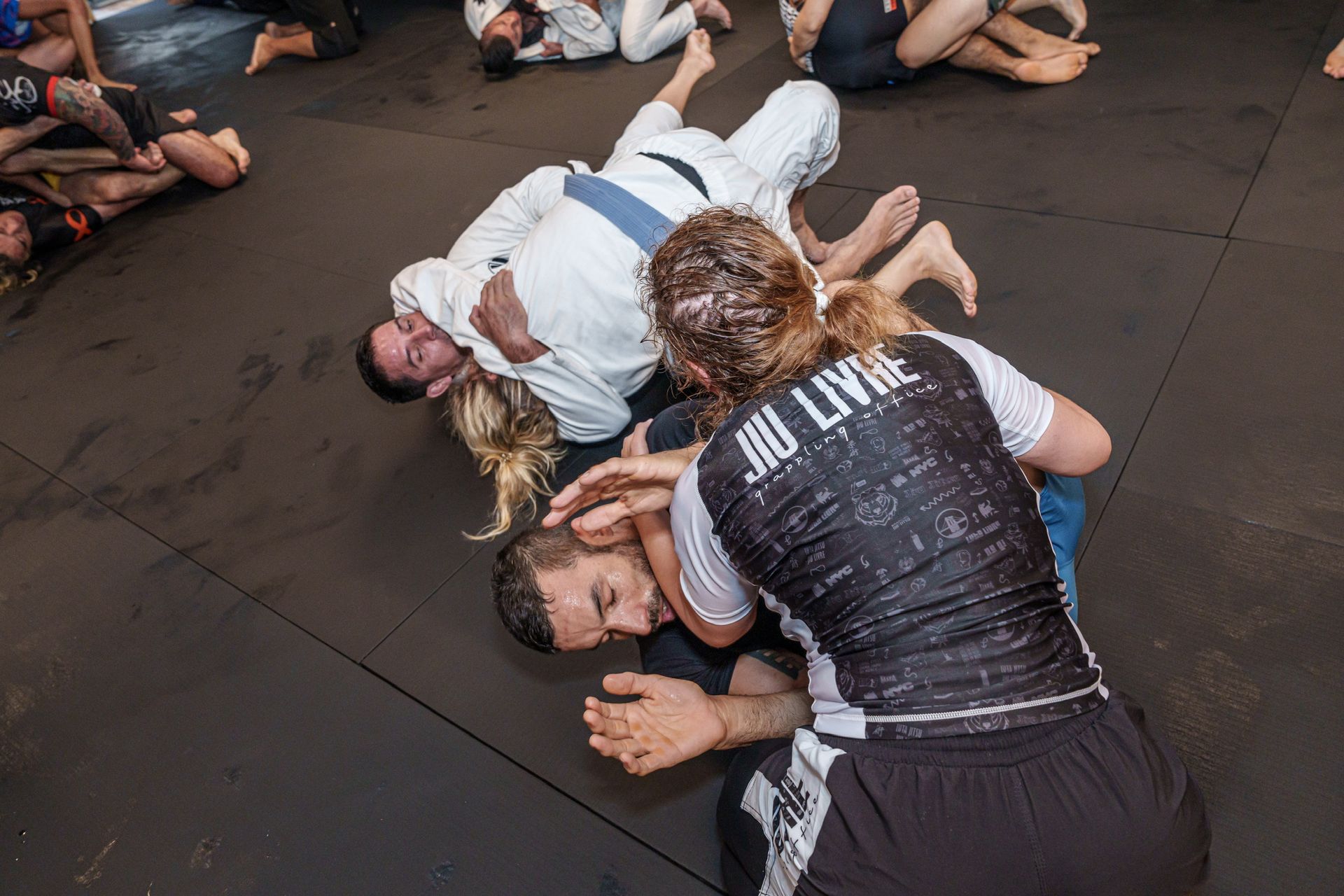
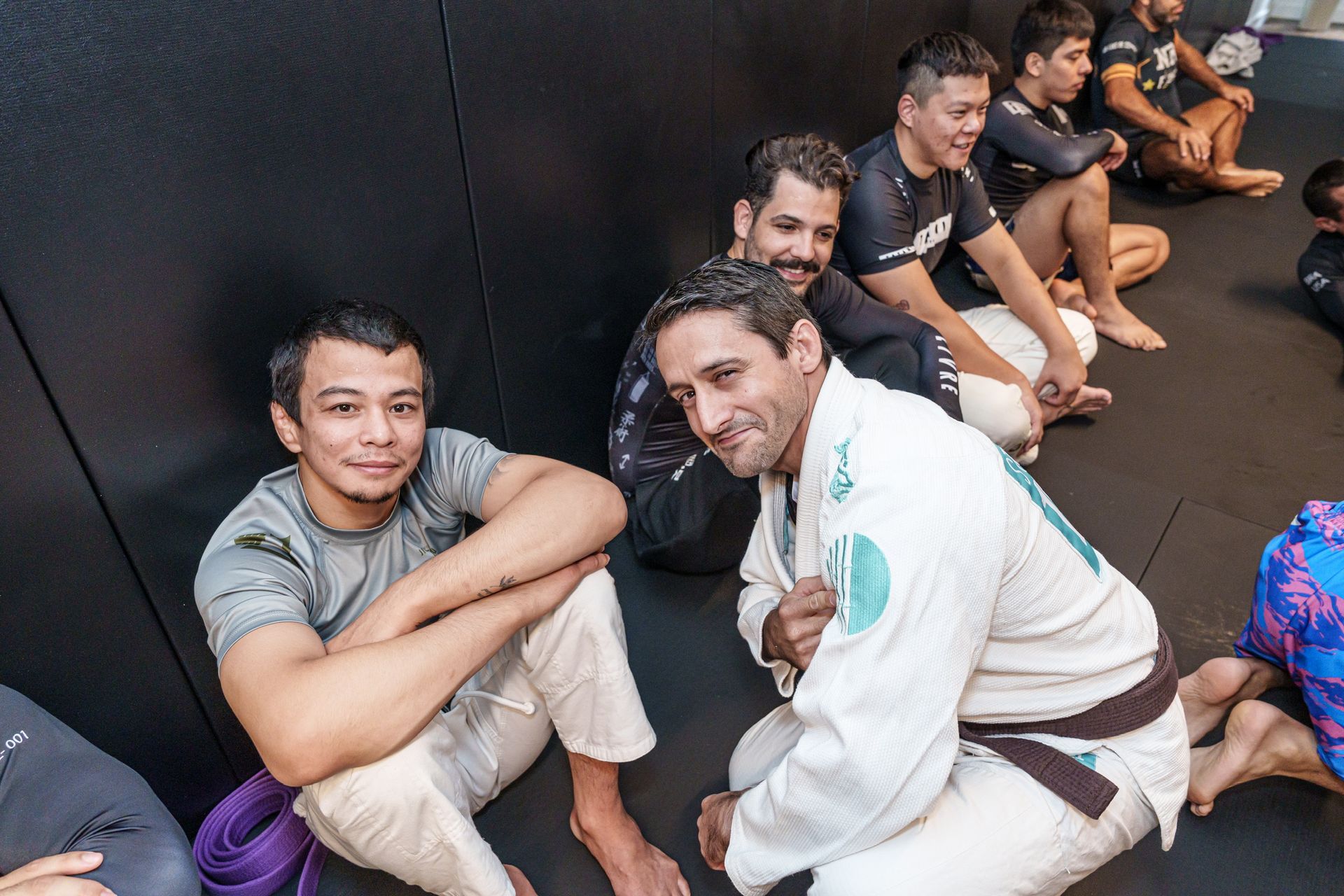
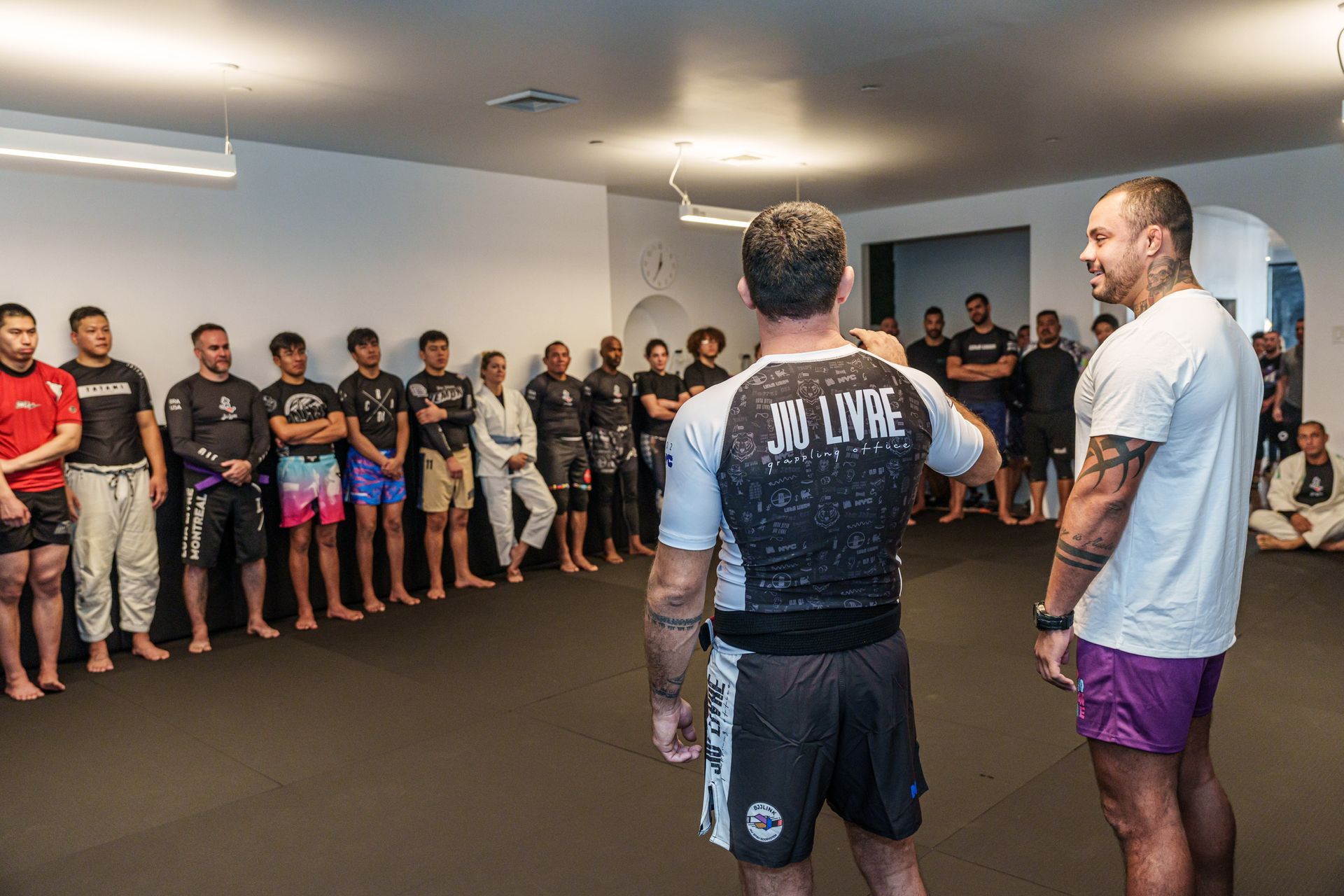
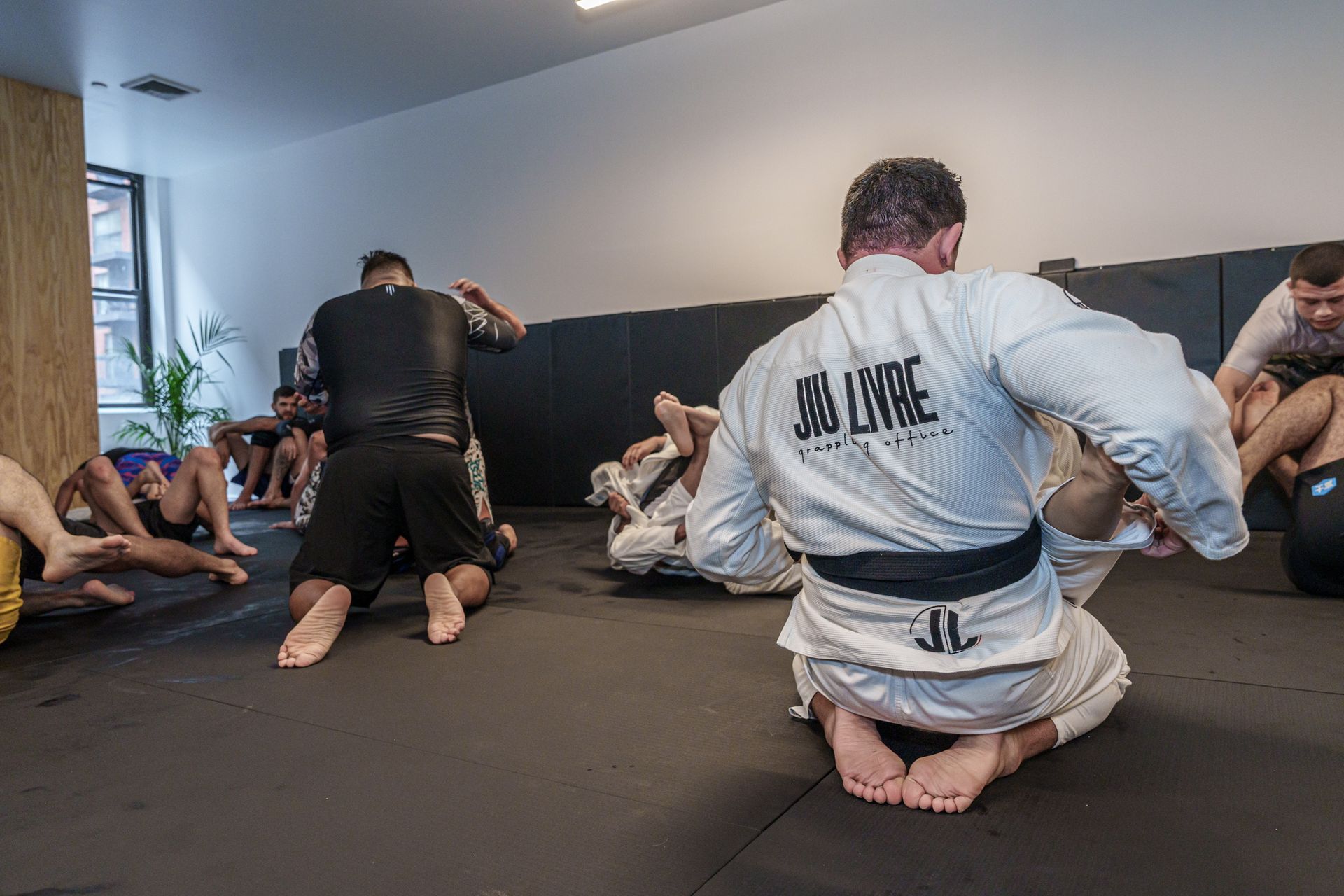
Request Information
Get started today with our EXCLUSIVE offer!
ACCESS OUR SCHEDULE
& EXCLUSIVE WEB SPECIAL
All Rights Reserved | Brava Holdings Inc.
